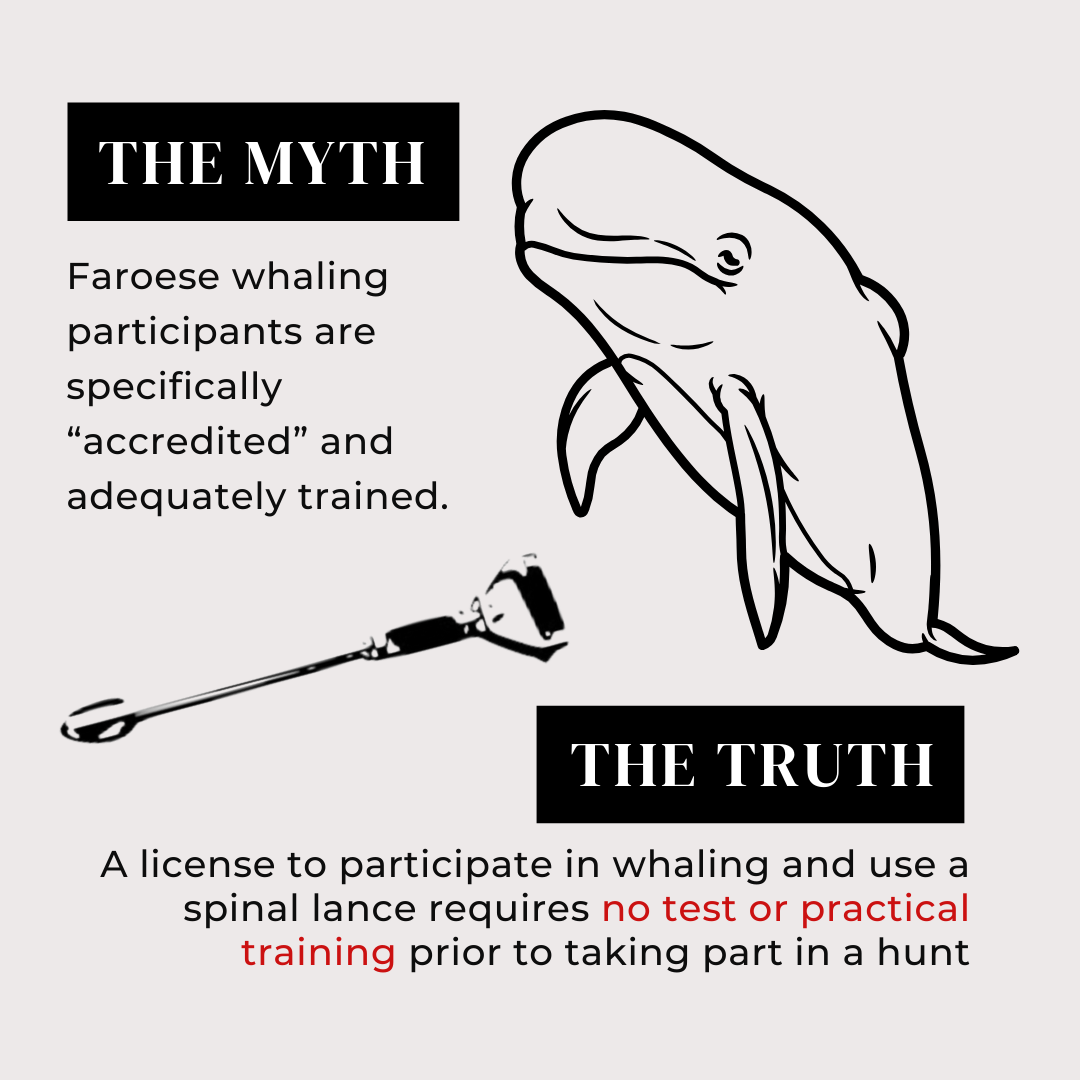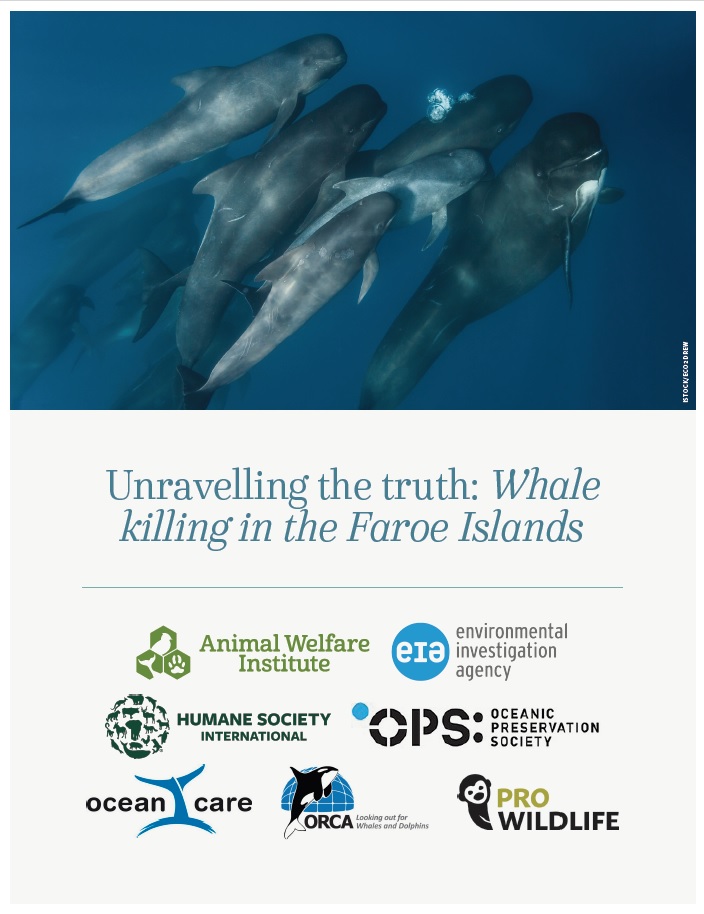
Following the recent Faroese drive hunt which resulted in the death of an additional 42 pilot whales, we’ve collaborated with Animal Welfare Institute, Environmental Investigation Agency, Humane Society International, OceanCare, ORCA, and Pro Wildlife to debunk some of the main justifications the Faroese hunters use to continue the killing of long-finned pilot whales and small cetaceans in the Faroe Islands.
The report, “Unraveling the truth: Whale killing in the Faroe Islands,” presents evidence challenging assertions that the annual drive hunts in the region are both humane and sustainable, while also questioning their role in local culture.
The hunts, known as the grindadráp, are largely condemned by the international community and with good reason. When a pod of whales or school of dolphins is spotted, hunters drive them to the shore and into designated killing bays using a line of boats. Once in shallow water, the hunters secure the animals using a round-ended hook driven into their blowholes, and pull them to land. There, every single cetacean is killed with a knife or sharp spinal lance. The hunters push the tool into the animals’ necks behind the blowhole. While it may paralyze the animal, their death isn’t immediate. Instead, they are rendered unconscious, or insensible to the pain.
This latest hunt has pushed the total count of whales and dolphins killed in the islands to over 900 this year, a significant increase compared to the usual annual average of 685 whales.
Among the report’s key findings:
• while many Faroese people may feel traditionally entitled to hunt and eat pilot whales, the majority do not participate in whaling or consume cetacean products from the hunt
• there is substantial domestic opposition to the hunting of smaller dolphin species for meat
• a recent assessment of Faroese hunting methods, as published in Frontiers in Veterinary Science, concluded that they are ethically and morally unacceptable
• claims that the hunts are sustainable are not only grossly oversimplified but also fail to account for pilot whales’ slow reproduction rate and the detrimental impact the hunts have on entire social units
